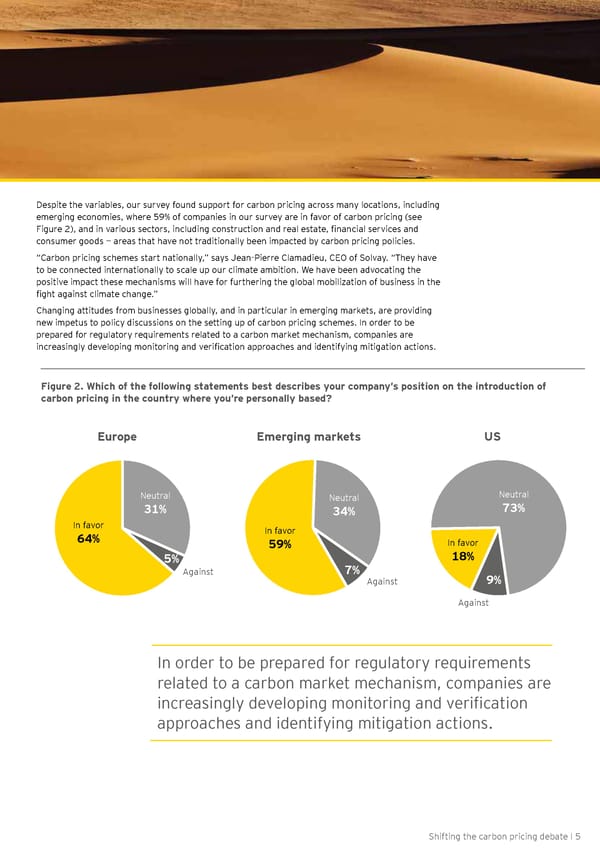Despite the variables, our survey found support for carbon pricing across many locations, including emerging economies, where 59% of companies in our survey are in favor of carbon pricing (see Figure 2), and in various sectors, including construction and real estate, financial services and consumer goods — areas that have not traditionally been impacted by carbon pricing policies. “Carbon pricing schemes start nationally,” says Jean-Pierre Clamadieu, CEO of Solvay. “They have to be connected internationally to scale up our climate ambition. We have been advocating the positive impact these mechanisms will have for furthering the global mobilization of business in the fight against climate change.” Changing attitudes from businesses globally, and in particular in emerging markets, are providing new impetus to policy discussions on the setting up of carbon pricing schemes. In order to be prepared for regulatory requirements related to a carbon market mechanism, companies are increasingly developing monitoring and verification approaches and identifying mitigation actions. Figure 2. Which of the following statements best describes your company’s position on the introduction of carbon pricing in the country where you’re personally based? Europe Emerging markets US Neutral Neutral Neutral 31% 34% 73% In favor In favor 64% 59% In favor 5% 18% Against 7% 9% Against Against In order to be prepared for regulatory requirements related to a carbon market mechanism, companies are increasingly developing monitoring and verification approaches and identifying mitigation actions. Shifting the carbon pricing debate I 5
 Shifting the Carbon Pricing Debate Page 4 Page 6
Shifting the Carbon Pricing Debate Page 4 Page 6